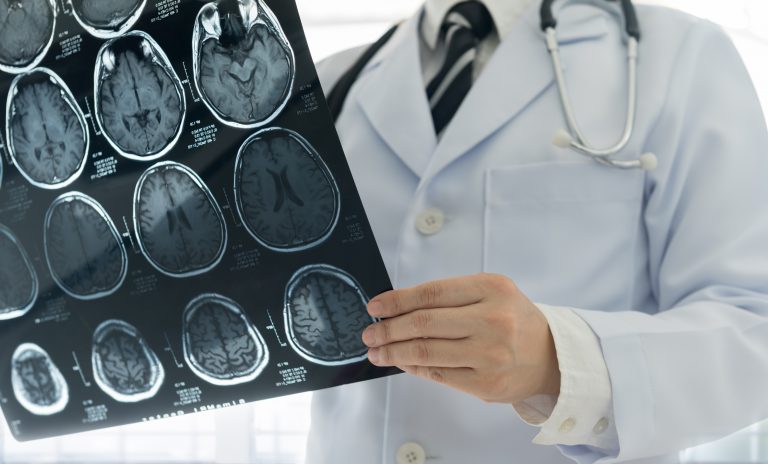If you suspect that you have a bulging disc in your neck or back, the first step is to see your primary care physician. They will begin the diagnostic process by discussing your symptoms and medical history. Your doctor will need to perform a physical exam on your spine. As well as conduct a series of in-office tests to evaluate your reflexes, range of motion, and gait.
Although your initial visit will provide clues as to the causes of your symptoms, a definitive diagnosis cannot be made in a single office visit. More often than not it requires a more comprehensive examination. This is because it is important to determine the condition of your spine and the precise location of the injury.
Since the pain and discomfort associated with a bulging disc is the result of a nerve root becomes compressed when the disc’s outer wall begins to push against it, it is not uncommon for patients to be referred to a neurologist for further evaluation. This type of doctor specializes in the diagnosis and treatment of disorders associated primarily with the brain. However, they are also specialized in the spinal cord, nerve, and muscle disorders.
What to Expect?
If your doctor refers you to a neurologist because of a bulging disc, they will often conduct an EMG or electrogram. The goal of this is to evaluate the communication between the affected nerve and the muscle it works. This is done by inserting a needle-like electrode into the skin to record electrical activity. Other tests a neurologist might order include:
- X-Ray – to image the vertebrae in your neck or back
- CT Scan – to acquire a cross-sectional view of the spine
- MRI – to view soft tissue such as cartilage, tendons, ligaments, and organs in detail
- Myelogram – to inject contrasting material into the space around the spinal cord and nerve roots for a clearer view of the site
Once the neurologist determines the exact location of your bulging disc, they will recommend treatment options to manage symptoms. You can expect to try a number of conservative strategies first. This can include physical therapy, over-the-counter anti-inflammatories, hot/cold compress, stretching and exercise routines, and certain lifestyle changes.
In many cases, these approaches are effective in reducing or eliminating chronic pain that can result from a bulging disc. Sometimes, however, if you are unable to find proper relief surgery, your doctor will recommend surgery.
Your Bulging Disc Treatment
At BEST, we are a leader in minimally invasive surgeries that are a safer and more effective alternative to traditional open-back surgery. In addition, our state-of-the-art facility is capable of providing diagnostic imaging such as X-rays and MRIs. If you would like to learn more about what BEST can do for you, feel free to contact us today!
